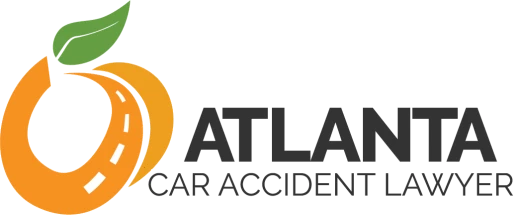
You can indeed sue for a concussion if an at-fault driver is responsible for the injury. In the personal injury claim, you can also seek to recover damages suffered because of the injury.
A few seconds is all it takes to change your life forever. If you or a loved one suffers from a concussion as the result of a collision, an Atlanta car accident lawyer can help you receive the compensation needed to get your life back.
Defining a Concussion
Concussions are traumatic brain injuries resulting from a jolting impact which causes the head to move back and forth violently, smashing the brain into the skull. This damage creates chemical changes, affecting the normal functions of the brain.
This disabling effect can last a short period of time or take a long time to recover. Ranging from mild to serious, depending on the force of the impact, concussions can temporarily change lives or become a lifelong struggle. There are three primary types of injuries associated with traumatic brain injury:
- Coup Injury – Brain trauma occurs in the spot where a moving object makes an impact with a stationary head.
- Contrecoup Injury – Brain trauma occurs when a head in motion hits a stationary object, causing the floating brain to rebound in the opposite direction and strike the skull.
- Coup-contrecoup Injury – This is the most severe injury occurring when the head hits an object, then the brain jolts toward the object and collides with the skull. The brain rebounds due to the initial impact, causing a second impact on the brain as it strikes the opposite side of the skull.
Contusions
Any of these injuries can lead to a bruise on the brain, known as a contusion. Contusions are not concussions, but both can occur at the same time. Both are traumatic brain injuries with slight distinctions:
- Contusion – An injury that causes the brain to bleed, resulting in blood clotting and forming a bruise. This type of brain injury also increases the risk of cardiovascular complications.
- Concussion – An injury caused explicitly by brain trauma.
The severity of both contusions and concussions falls on a three-point scale:
- Grade 1 = mild concussion
- Grade 2 = moderate concussion
- Grade 3 = severe concussion
Concussion Symptoms
Concussions disrupt brain functions in a multitude of ways. In some cases, the symptoms are evident right away. In other cases, signs of a concussion take time to emerge.
Depending on the strength of the impact on the head, concussion victims can suffer from symptoms for days, weeks, or in severe cases, permanently. The physical symptoms that can be produced by traumatic brain injuries include:
- Blurred vision
- Balance problems or appearing clumsy
- Fatigue
- Headaches
- Nausea or vomiting
- Ringing in ears or tinnitus
- Sensitivity to noise and light
- Slurred speech
The mental symptoms that can be produced by traumatic brain injuries include:
- Behavioral or personality changes
- Depression and/or anxiety
- Foggy or difficulty with thinking clearly
- Forgetfulness
- Inability to concentrate
- Loss of memory
- Sleeping poorly
- Struggle to retain new information
Concussion Tests
There are evaluations and tests that can be administered to determine whether someone is suffering from a brain injury. If conducted properly, these tests should be able to detect the presence of a concussion. These tests include:
- Neurological Tests – Evaluating an injured person to determine if they have the ability to perform basic tasks like tracking a finger with their eyes without moving their head.
- Memory Tests – Evaluating a person’s ability to recall basic facts and details by asking questions like “What’s your name?” or “Do you know where you are?”
- Reflex Tests – Evaluating a person’s autonomic functions by shining light into their eyes, watching for dilation or contraction of the pupils in response to light exposure.
A thorough examination by a physician may also include:
- Inspecting the injury visually, touching the area to test for pain
- Taking x-rays and/or conducting a magnetic resonance imaging (MRI) scan to check the brain for the possible presence of non-visible bruises
Concussion Treatment
If someone is suffering from head trauma, it is crucial to immediately seek medical attention to begin treatment. Too many head injuries go undiagnosed and untreated, and often, the symptoms only get worse and create long-lasting effects.
The treatment regimens for concussions and contusions are similar. Mild brain trauma can subside with rest and time. Moderate and severe injuries often require prescription medications and/or invasive surgery to relieve the pressure on the brain.
After surgery, patients may need rehabilitation to regain physical stamina and coordination.
Contact an Atlanta Car Accident Lawyer Today
If you suffer from a concussion and/or traumatic brain injury because of a motor vehicle crash, you should reach out to an Atlanta car accident lawyer. An initial consultation allows us to get the specifics of the case, which will determine our course of action. We take a hands-on approach, always offering our clients the compassion needed to recover during stressful times.
It is of the utmost importance to seek an attorney in a timely manner. We are here to protect your rights while ensuring you receive the compensation you deserve. Contact us today.




